Related Tags
“I don’t like genres… they don’t serve artists in any way”: why Rosie Frater-Taylor is on a mission to challenge the guitar music norms
The guitar virtuoso on her stylistically chameleonic new record, and why she thinks “bad guitarists rely on good gear to sound good”
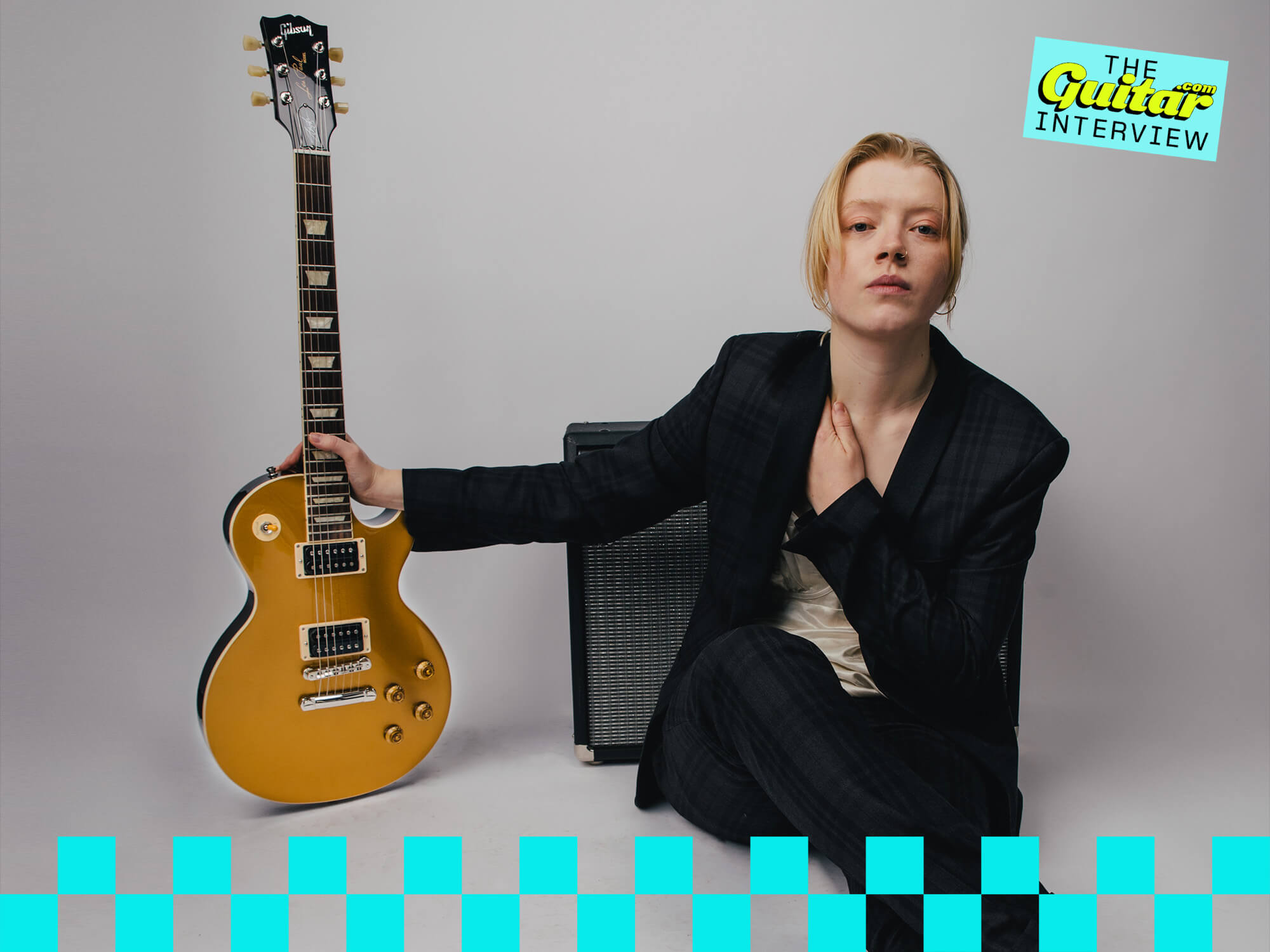
Talking about the new age of jazz in a swanky London hotel bar with Ella Fitzgerald playing over the speakers does feel awfully meta, but for guitarist Rosie Frater-Taylor, the nuance of this is inescapable.
Often referred to as a “jazz virtuoso”, Frater-Taylor seems keen to challenge genre expectation in newest album, Featherweight, and not be bound to the musical foundations she developed during her time studying jazz at the Royal Academy of Music.
“I don’t like genres as a whole,” she explains. “I think they sort of detract from art and they don’t really serve artists in any way. More than anything, they serve the people who sell the art.
“So I think as an album, it was my goal to make something that completely challenged the genre norm. I just want to inspire more artists to just make the music that’s most authentic to them,” the guitarist continues, “despite being told that they should make music that sounds like X, Y or Z because it’s doing well.”
Jazz roots
Being bound by any genre can be limiting for a young musician, especially one who is being labelled with words such as a “jazz virtuoso”.
Frater-Taylor’s third album marks a stylistic shift in her discography, nodding to her love of Americana-adjacent singer-songwriters such as Madison Cunningham as well as those that straddle the lines of multiple genres such as Willow Smith, or Lewis Taylor – and everything in between.
“I only talk about jazz because of how I’ve learnt to be the guitarist that I am, even though I don’t really play jazz anymore. It’s a bit of a political statement as an album as I’m saying ‘I’m going to make this music that you’re not necessarily going to know how to categorise, but that’s okay’.
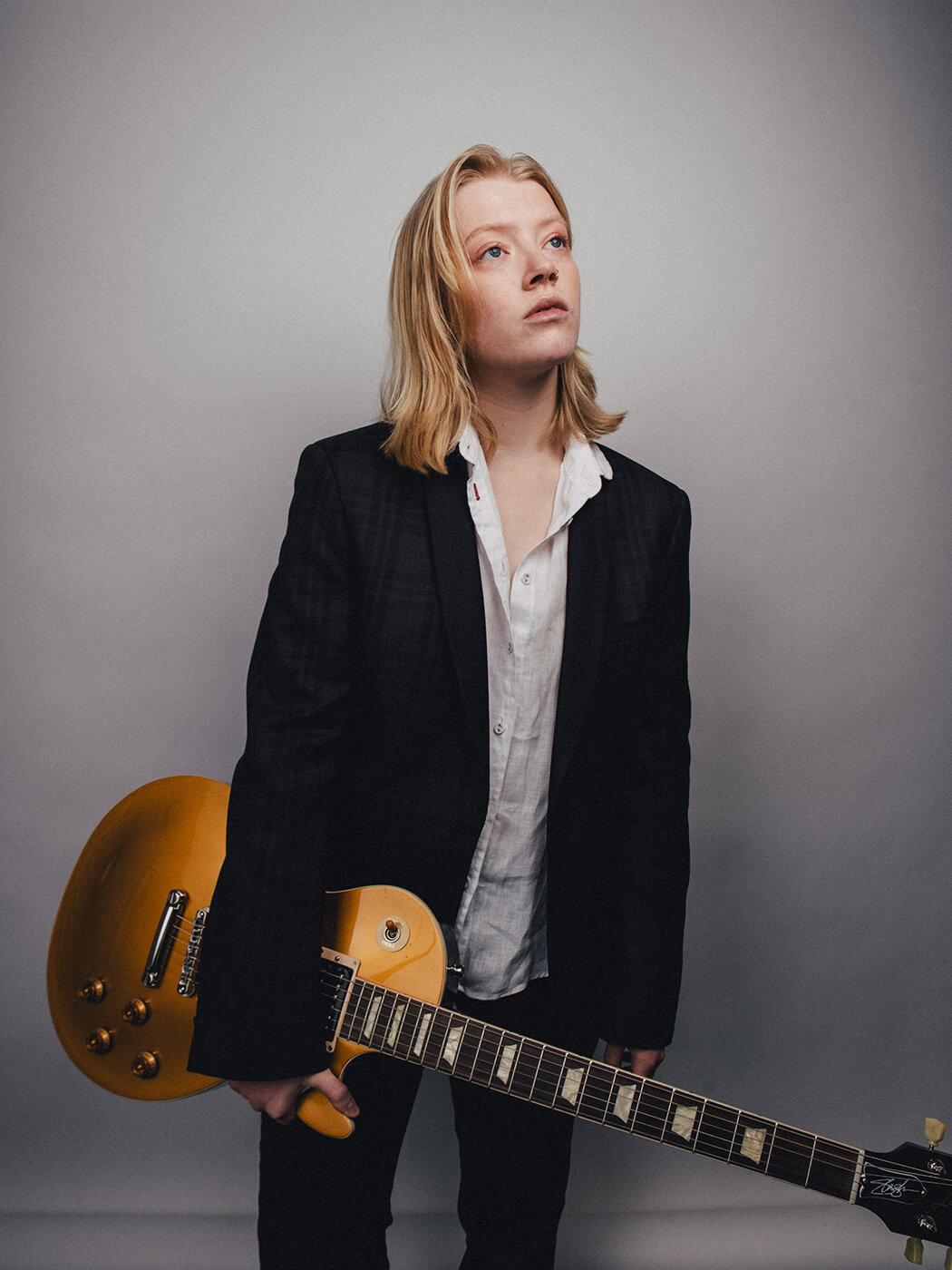
“I’m honestly just inspired by artists who combine that level of musicality which I’m really drawn to.”
Regardless of her clear need to look towards her musical future, rather than remain in the past, she does admit that jazz is “inescapable” for her; something that is always “rearing up from behind”, whether that is merely the chord progression that’s on her fingertips, or Ella Fitzgerald commandeering our conversation’s backing track.
Frater-Taylor’s newest album offers smooth jazz inspired vocals and intricate guitar lines accompanied by a real grit heard through overdriven guitar solos and bass riffs, giving the heavier touch that allows her record to staddle the line between many of the styles that she has clearly been inspired by.
Even through tracks like Give & Take, there’s a real sense of exploration when it comes to her capabilities as a guitarist, but also as a musician trying to solidify her style.
There is a clear admiration for the genre, even if the guitarist doesn’t see it as something that they want to partake in for now.
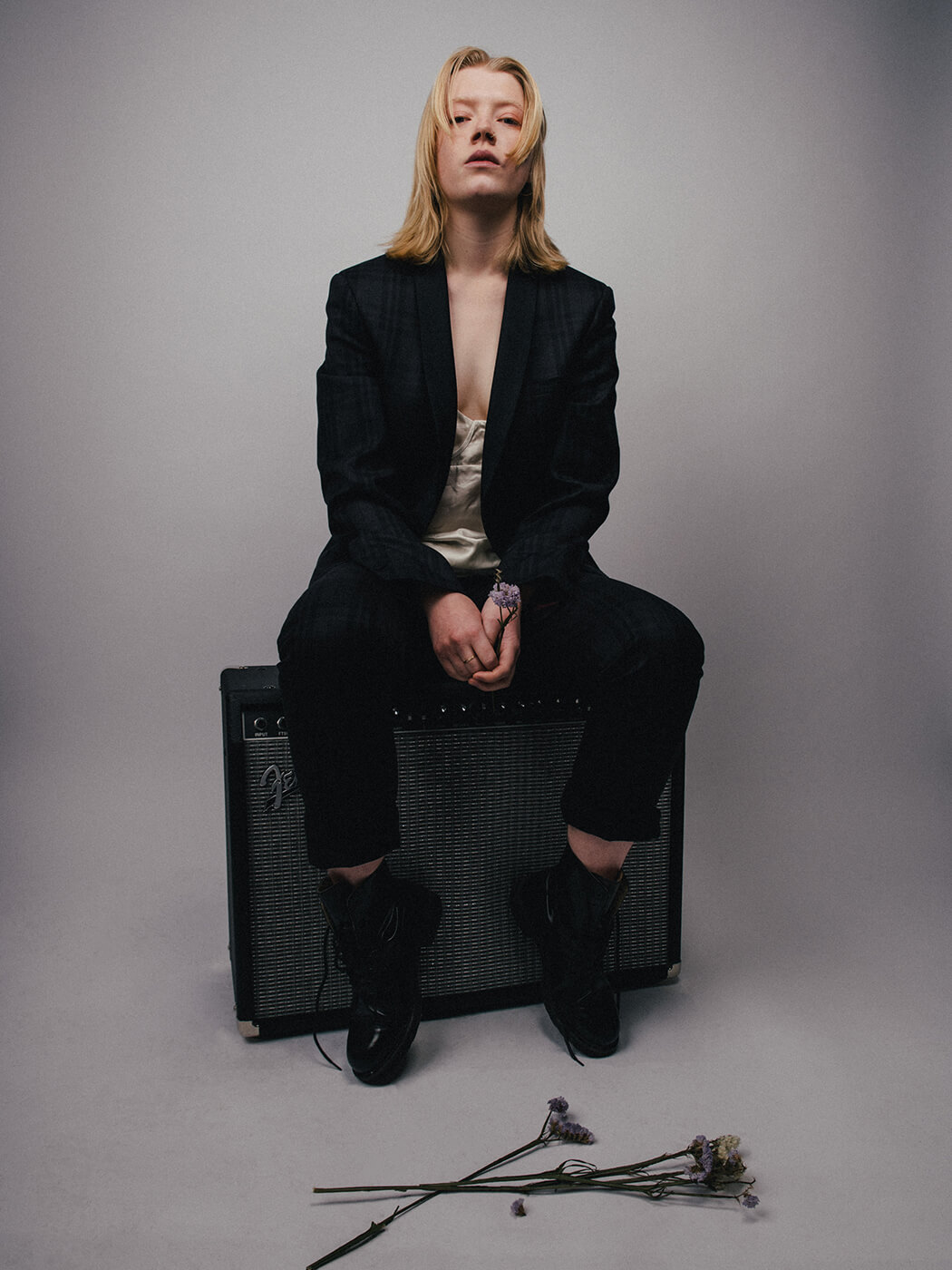
“It’s definitely the hardest genre for a guitarist,” she says, “and I think that’s what drew me to it. Watching someone like Joe Pass play something impossible, it makes me want to learn how to play something impossible.
“I think that jazz is more accessible now because it’s kind of come to the fore in the past decades,” she continues. “So the word jazz, especially in the UK, is less frightening and less stuffy. People are more open to that experimentation. They’re more willing to give it a chance.
“Whether you’re a fan of these people or not, it’s like that word jazz is entering a rebirth, which could also mean like this idea of like a deeper palette and deeper musicianship for everyone”.
Finding the right energy
Having released her first album at eighteen, Frater-Taylor’s relationship with the guitar has understandably shifted. As she explains, a lot of this comes from her band.
“We toured my last record Bloom in a trio set up, and so there’s so much space for the guitar,” she says. “So I think that made me really hone my playing, because when you’re performing your songs and you’ve got this massive crowd on big stages that have massive sound systems, you’ve got to bring it in those situations and fill out that space.
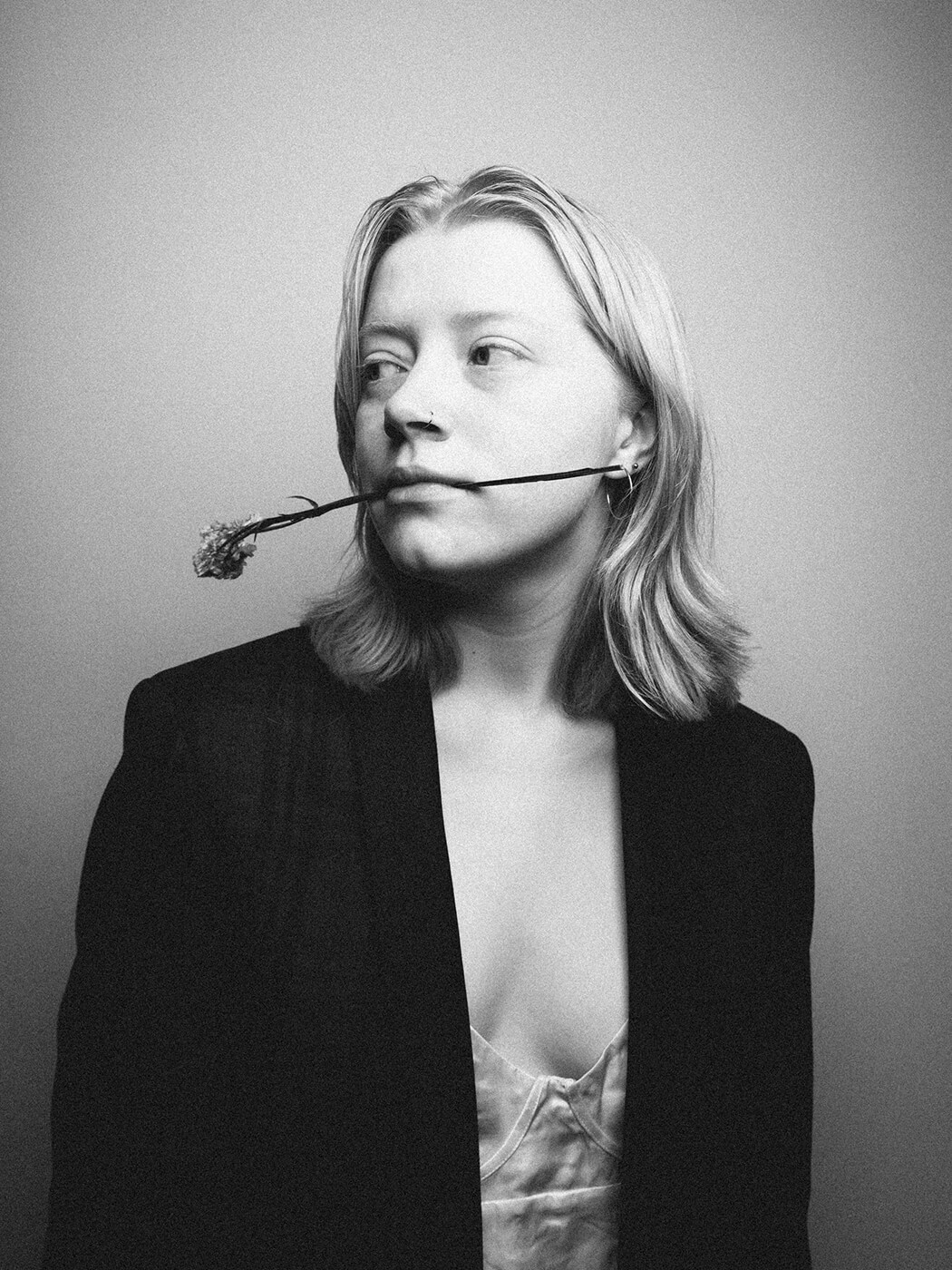
“My drummer Tom Potter and my bassist Dave Edwards, they bring a big energy to the music. So I was having to, in the best way possible, match what they were doing. I guess in that way I think that’s affected my guitar a lot in terms of maybe a heavier touch and being able to support a whole 90-minute set.
However, when it comes to playing on her own, Frater-Taylor really seems to come into her element, with her album sprinkled with solo interludes as heard in tracks Stop Running and Hold Weight.
With just a looping pedal, she manages to create a genre-bending soundscape, managing to impressively fill the space on her own. Not to mention her flurry of solo performances across the globe. “I find it’s a very intimate experience with an audience,” she admits.
“You can be performing to 50, 100, 150 people, whatever, but it still feels like a one-on-one thing when you’re playing on your own,” the guitarist continues. “And I like that a lot because I can really get into the lyrics and think about the lyrical content, and where the place of the song is actually coming from, such as why I chose a particular chord and why I might choose to play it in that specific way.”
“There’s a lot more space to do that when you’re playing on your own. And I love looping shit, kind of layering up chords and stuff, which is obviously something that I can’t really do with a band because they don’t know where beat one is in the loop.
“I think that’s definitely inside of myself, it’s like full on guitar. I can really indulge in the guitar thing.
Is she interested in a completely solo album? “Yes, definitely,” she exclaims. “I’m interested to try it. I think it would sound very different to the music I make now because the one thing I love to do is layer and overdub and create soundscapes when I’m producing music. I’ll layer up really dissonant harmony parts So it would be very different for me, but it’s something I’m yet to come to”.
Bad guitarists rely on good gear
Turning the conversation to gear, and for Frater-Taylor it’s an easy answer as her partnership with Gibson since 2022 has resulted in quite the love affair with the Les Paul:
“They’re really thick, really warm, really dark, you can go really dark with it,” she explains. “So if you want to play big, rich chords and sing over the top, especially if I’m singing my solo or doubling the line, the voice and the Les Paul work really nicely together.
“But I did recently buy a Telecaster… maybe not something to tell them.”
Considering that many of her live performances have been in a trio or solo set up, she explains that she tends to look for pedals that “add some interest to the sound and pad it out a bit”, such as vibrato and reverb.
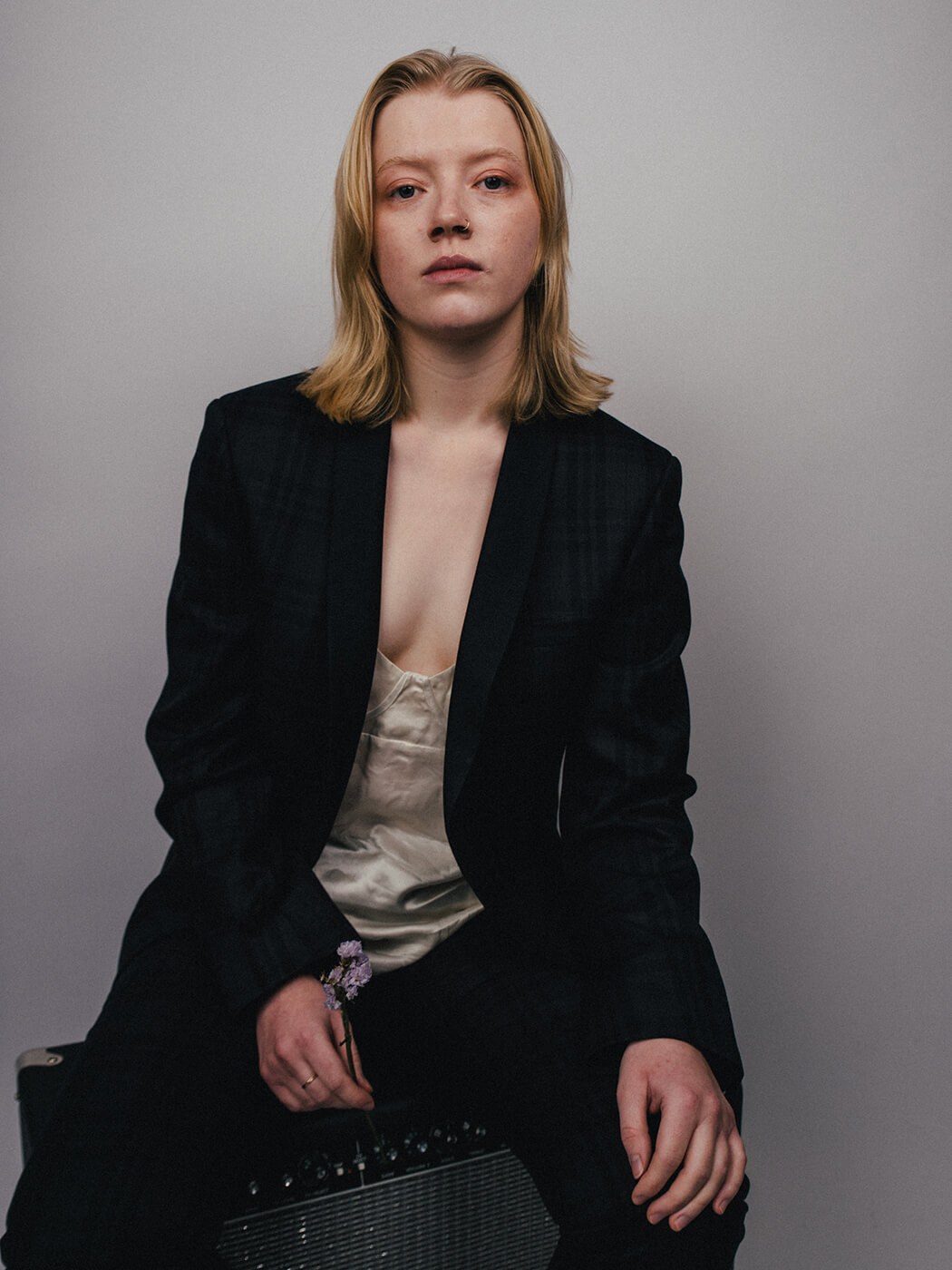
While this album is admittedly heavier in terms of tone, and the liberal use of overdrive in many of the tracks, Frater-Taylor does reveal that she has quite a strong opinion when it comes to the use of pedals.
“I think generally I’m quite minimal with my gear because in the back of my mind I’m like it’s a test. I don’t want to sound shit if I don’t have the gear,” she explains. “If I forget my pedals, I just want to be able to play.
“I just think pedals can be quite a cop-out for a lot of guitarists,” Frater Taylor admits. “Bad guitarists rely on good gear to make them sound good.
“For me it’s all in the fingers and in your ability and how much you’re able to hone what you’re doing. You wouldn’t go and add a pedal to a saxophone to get a good tone”.
